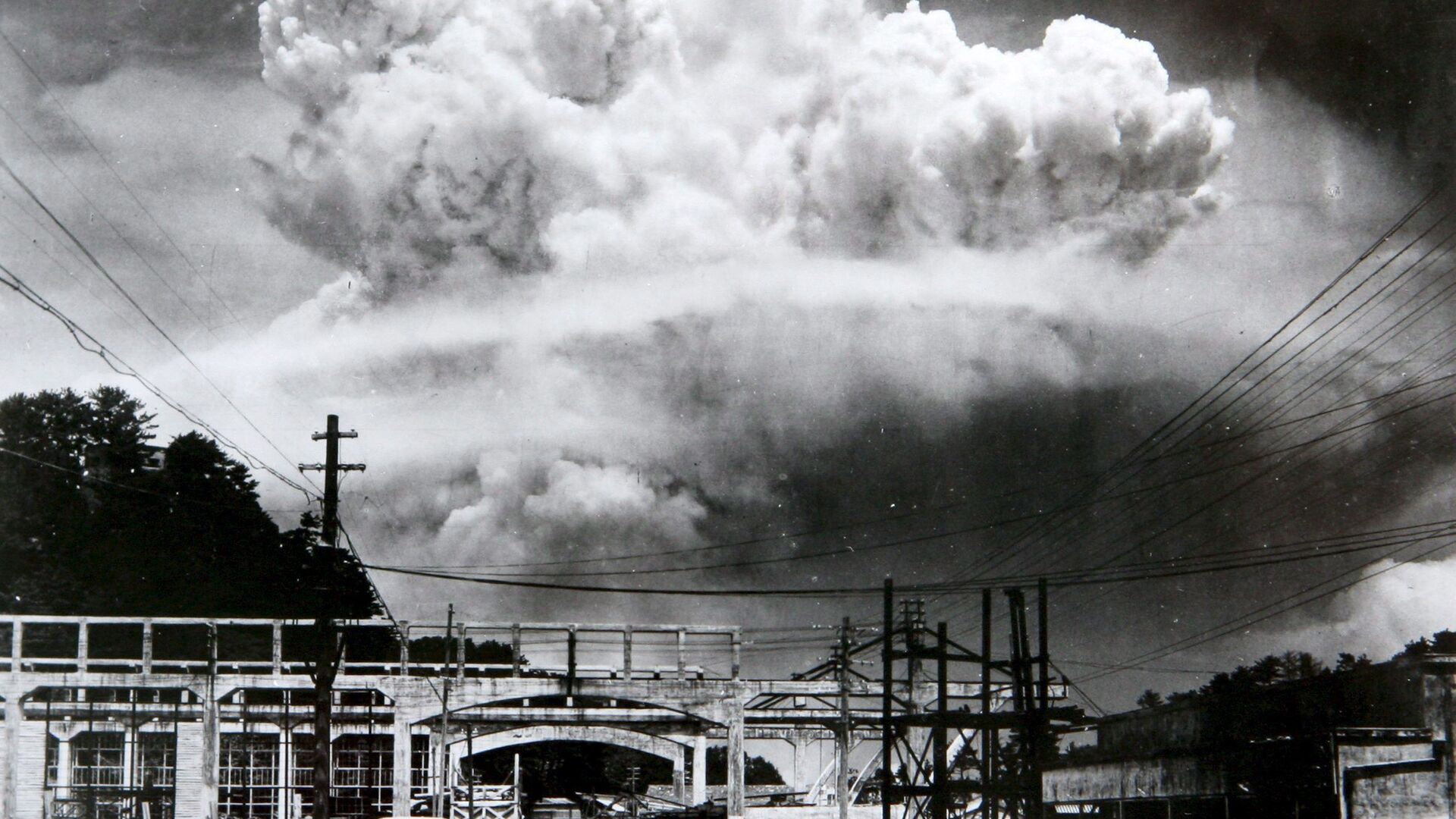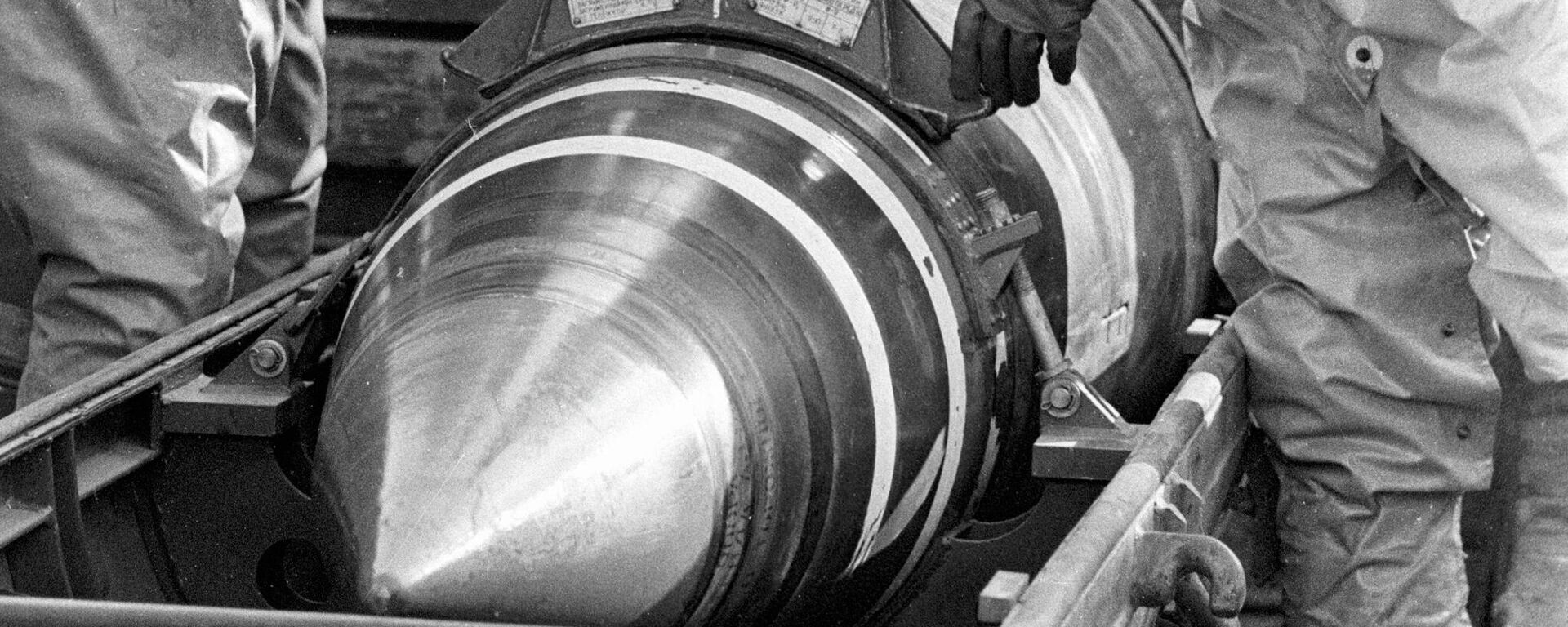Why US' Nuking of Hiroshima and Nagasaki Should be Legally Assessed by Int'l Court
Subscribe
The US nuking of Hiroshima and Nagasaki on 6 and 9 August 1945, respectively, created a dangerous historic precedent which has yet to be legally assessed by international institutions, Alexander Panov, Ambassador Extraordinary and Plenipotentiary of the Russian Federation, who worked in Japan from 1996 to 2003, told Sputnik.
"Of course, those who made the decision to carry out the atomic bombings [of Hiroshima and Nagasaki] and those who carried them out are no longer alive today," Alexander Panov, Russian career diplomat and political scientist, told Sputnik. "However, the point of holding a tribunal for the bombings of Hiroshima and Nagasaki is to assess such actions. This is necessary to ensure that similar criminal acts do not happen again in the future."
Following the nuclear strikes, the US came up with a convenient excuse that the bombing hastened the end of the war and saved the lives of American soldiers, noted Panov, emphasizing that these claims don't hold water.
First, there was no military need for the atomic bombing of Japan, according to the diplomat. Prior to taking the decision to bomb the Japanese cities, six of the seven top US military officials argued that there was no military necessity for it, and that, from an ethical point of view, it would be a barbaric inhumane act. Indeed, there were zero important military installations in Hiroshima and Nagasaki.
Second, the atomic bombings of Hiroshima and Nagasaki did not force Japan to surrender, highlighted Panov. In reality, Japan made the decision to lay down their arms only after the Soviet Union entered the war with Japan at 11 a.m. on August 9, 1945. At a meeting of Japan's top leadership, then-Prime Minister Kantarō Suzuki stated that the position of Japan had become absolutely hopeless due to the USSR's decision to step in. Therefore he insisted on acceptance of the terms of surrender.
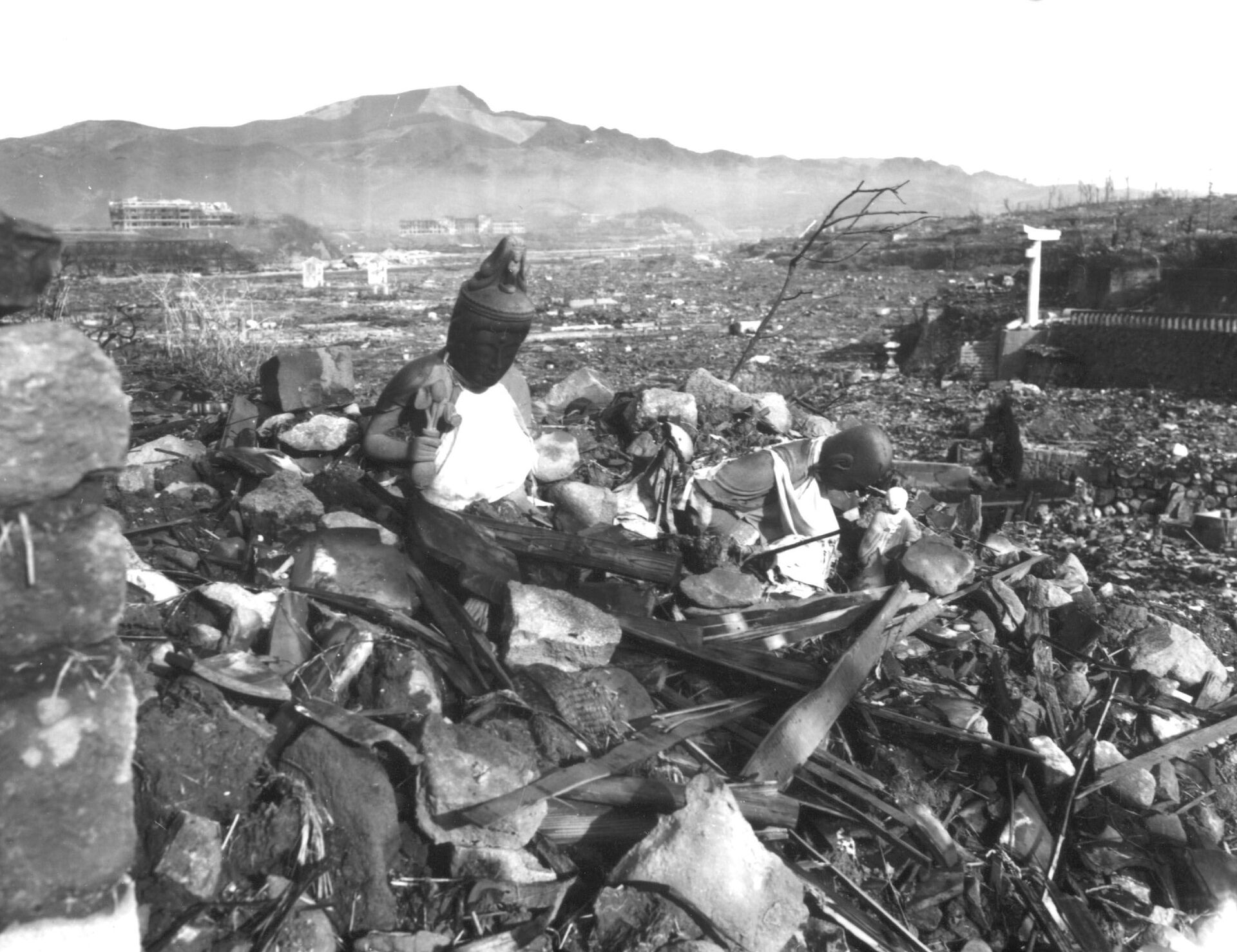
Разрушенный Нагасаки, 24 сентября 1945 год
© AP Photo
"Undoubtedly, in 1945, an inhuman act of using nuclear weapons was committed [by the US]," emphasized Panov. "Furthermore, it was used against the civilian population (…) This, one might say, was a greater atrocity than the use of chemical weapons by Germany during the [First] World War. Still, the Germans used [chlorine] gas against enemy soldiers. Nevertheless, gas attacks are recognized as inhuman acts. As a result, chemical weapons have been banned and are being destroyed."
Panov insisted that it is "extremely important" that the United States apologize for the inhumane and absolutely barbaric act committed against Japanese civilians and express its regret. He pointed out that international law, which existed already in 1945, placed emphasis on a requirement to protect, as far as possible, the civilian population from damage caused by hostilities.
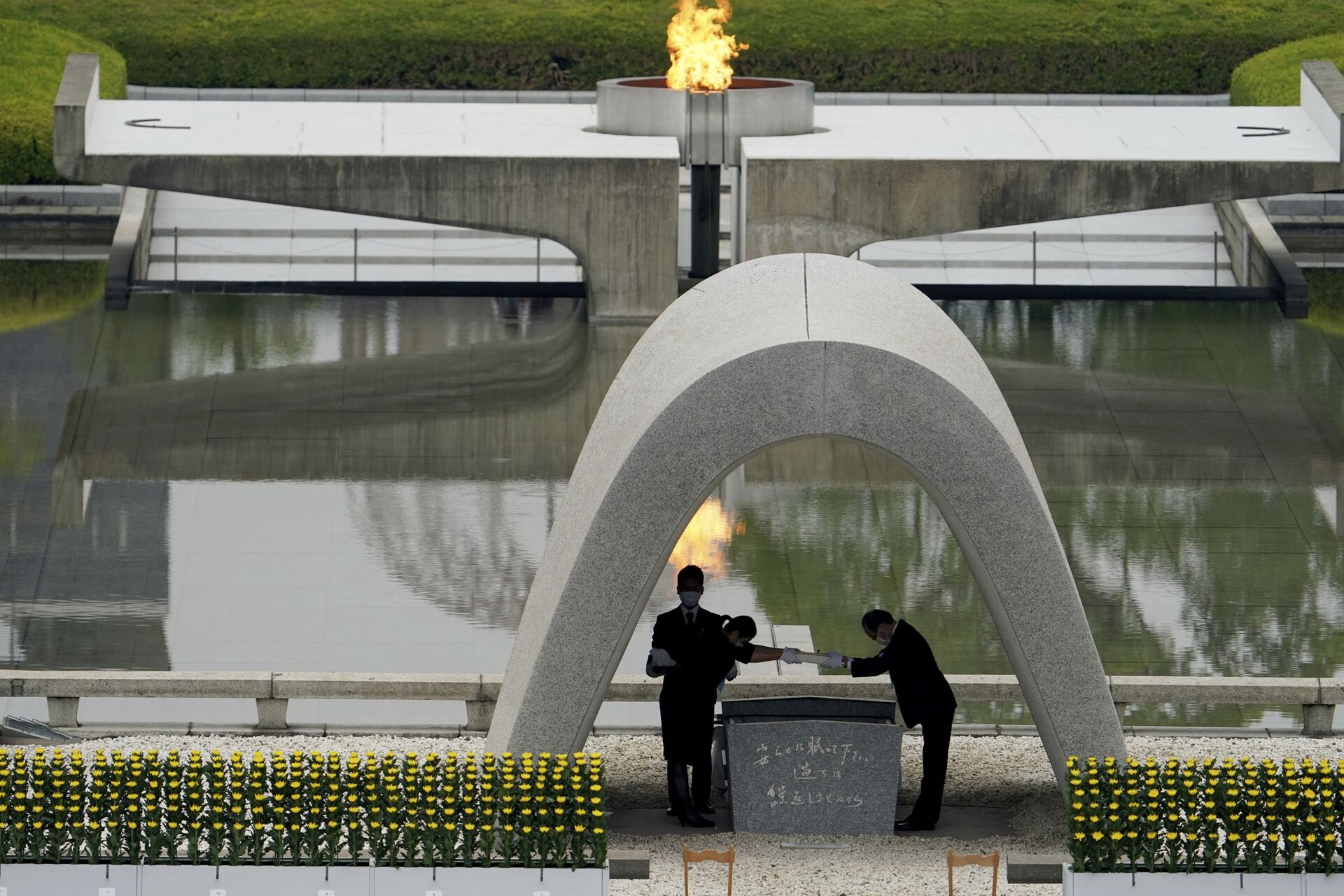
Kazumi Matsui, right, mayor of Hiroshima, and the family of the deceased bow before they place the victims list of the Atomic Bomb at Hiroshima Memorial Cenotaph during the ceremony to mark the 75th anniversary of the bombing at the Hiroshima Peace Memorial Park Thursday, Aug. 6, 2020, in Hiroshima, western Japan.
© AP Photo / Eugene Hoshiko
"In May [2022], after the G7 summit, Japan invited the Americans to visit Hiroshima, but they refused," Panov remarked. "Until recently, US top ranking officials avoided visiting Hiroshima and Nagasaki. I think deep down they understand what a terrible crime they have committed. At the same time, they do not plan to express their regret."
Make no mistake: the US did not regret nuking the two Japanese cities, noted the Russian diplomat. That is why Washington's military adventurism and use of non-conventional weapons against civilians continued, according to him.
"We know what the United States did to Vietnam, by burning villages with napalm, destroying forests and fields with dioxin, subjecting people to suffering," the diplomat said. "After that, there were terrible bombardments of Yugoslavia [in 1999]."
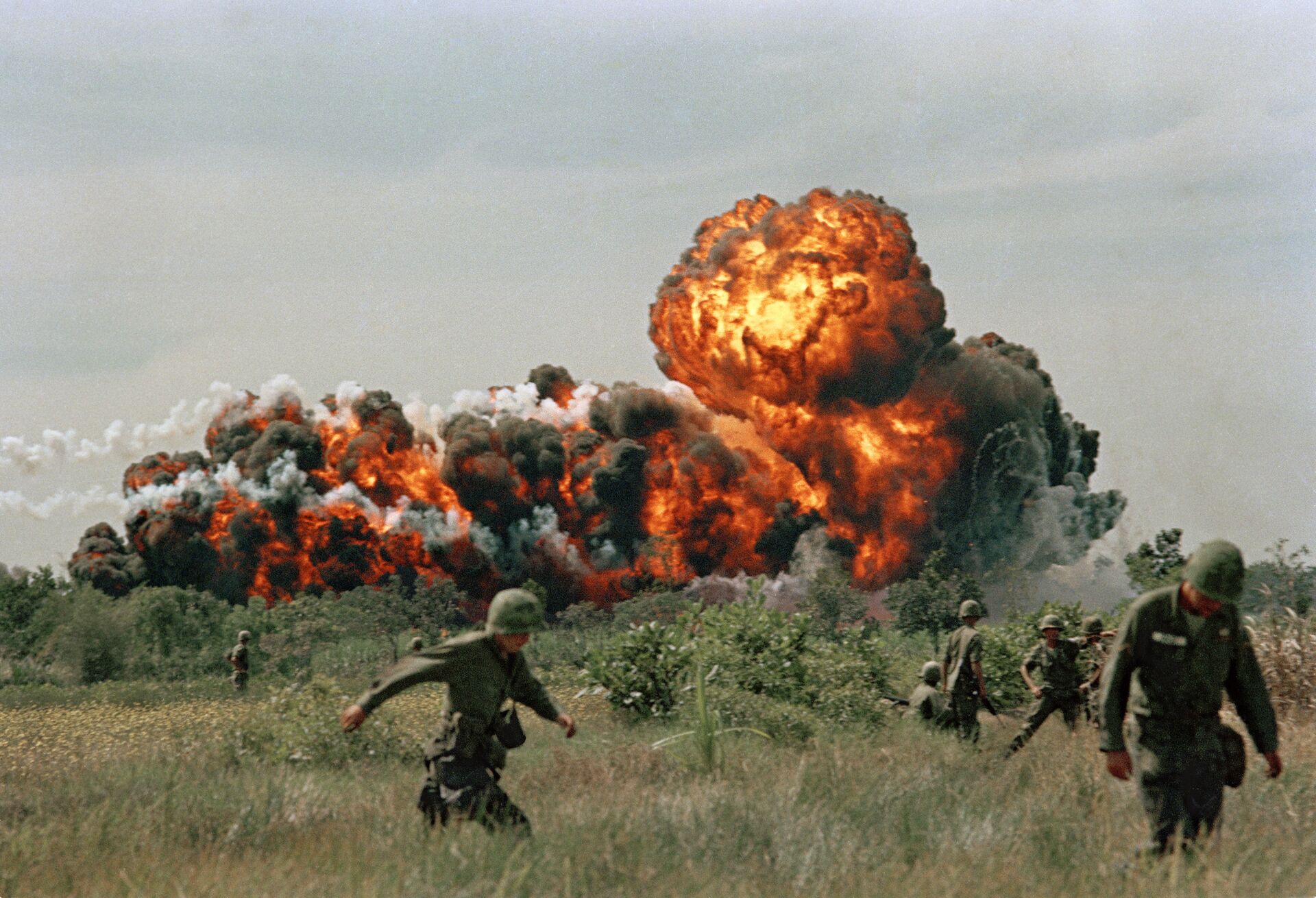
A napalm strike erupts in a fireball near U.S. troops on patrol in South Vietnam, 1966 during the Vietnam War
© AP Photo
All these actions have to be assessed within the framework of international law, otherwise these incidents will continue to pile up, according to the political scientist. He noted that it is highly unlikely that the UN Security Council would initiate and hold a tribunal over the bombing of Hiroshima and Nagasaki because Washington would simply veto this initiative.
"At present, it is only possible to create an international public court, in which politicians, public figures, scientists, journalists will take part, who will gather, discuss problems, and express their personal opinions," said Panov. "I think it would be very important. Perhaps (…) they will decide to establish an international tribunal which decisions would have legally binding force."
US Nuclear Blackmail and Kiev's 'Dirty Bomb'
The issue raised by Panov has taken on a new significance as the US has repeatedly resorted to nothing short of nuclear blackmail and threats amid Russia's special military operation to demilitarize and de-Nazify Ukraine. The US mainstream media and top officials are speculating about the possibility of a Russian first atomic strike, even though Russia's nuclear doctrine forbids the use of nuclear weapons of any kind - tactical or strategic, unless nuclear weapons or other weapons of mass destruction are used against the country first, or in the event of a conventional attack so severe that it threatens the country's existence.
In his September 21 address, Russian President Vladimir Putin warned the US and Kiev against nuclear provocations, referring to "the Western-encouraged shelling of the Zaporozhye Nuclear Power Plant," as well as "the statements made by some high-ranking representatives of the leading NATO countries on the possibility and admissibility of using weapons of mass destruction – nuclear weapons – against Russia." On September 30, Putin highlighted that the United States was the first to use nuclear weapons twice, destroying the Japanese cities of Hiroshima and Nagasaki. "By the way, they set a precedent," the Russian president warned.
Meanwhile, late last week, Russia raised a red flag over Kiev's potential use of a "dirty bomb" in order to blame Moscow for the resulting radioactive contamination amid the ongoing Russian special military operation to demilitarize and de-Nazify Ukraine. The US, Britain and France rejected Moscow's warning in a joint statement early Monday, denouncing it as "a pretext for escalation by Russia."
Moscow is continuing to ring the alarm bells over what threatens to become yet another dangerous nuclear precedent following the US bombing of Hiroshima and Nagasaki. Foreign Minister Sergei Lavrov vowed to bring the matter up at the United Nations Security Council, stressing that Moscow has "specific information" about Ukraine's expertise and capabilities to build a dirty bomb.

